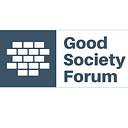Gender Equality in the Good Society
Although there has been considerable progress since the 1995 conference on women in Beijing, gender equality has yet to be attained particularly in the Arab world, reflected Tunisian politician Samia Melki, at a Good Society Forum webinar on 8 July. Samia, who is president of Kadirat and member of the steering committee of Solidarity for African women’s rights network, observed that women’s political participation in the region is hindered by male interpretations of the Quran, traditions and culture.
In some countries, the Arab uprisings helped women achieve greater rights through revised constitutions and increased representation in parliament and government. The uprisings were initiated by what Samia described as “secular and progressive forces.” However, she noted that they also unleashed repressive, conservative forces.
Tunisia is the only country to have fared well out of all the Arab Spring and this is due in large part to the position of women in society, from activists through to judges. Tunisia is famed for its wasatiyya, moderation. It has a very progressive personal status code, drafted in 1956. It is the only Arab country that has abolished polygamy. And women in Tunisia have the right to file for divorce. Tunisia has lifted its reservation on the Convention on the Elimination of Discrimination Against Women, and ratified the Maputo protocol for women rights.
In Tunisia, 60% of doctors and 80% of nurses and caretakers are women. The new government has appointed the Minister of Women Affairs as the government spokesperson. And the Minister of Justice is also a woman.
During the Covid 19 pandemic, to prevent women’s concerns being relegated, women activists mobilized their local, national and international networks to inject women into decision making processes.
Randa Siniora, a Palestinian human rights and women’s rights defender, highlighted the prevalence of violence against women both in the public and private spheres in the Arab world, noting “37% of women have been subjected to one form or other of violence.” She claimed that violence is deeply rooted in social and cultural factors. Patriarchal structures confine women to the private sphere and to traditional roles, excluding them from participating in the economy and keeping them dependent on men.
During the lockdown, Randa, who is currently the General Director at the Women’s Center for Legal Aid and Counseling in Jerusalem, has observed an increase in domestic violence with higher demands for social and legal aid services. Many women have been confined in their homes with their abusers.
Randa stated her firm conviction that we can make a better world through policies and legislation which empower women and ensure gender equality. But it is not easy to push forward such reforms. Randa related how women activists and human rights defenders are often accused of pushing a Western agenda and values that are alien to Arab society.
Fatemah Khafagy, an Egyptian human rights activist and Coordinator of the Arab Women Network for Parity and Solidarity, explained that in the Arab world, fiqh (Islamic jurisprudence) allows for the male interpretation of religious scripture, demanding that women obey men, and giving men the right to discipline women. She referred to the structural and systemic inequalities that women have endured for years. She called for greater participation of women in society, saying “if women are not included it is not only women who lose out but society as a whole.” On a positive note, Fatemah observed that an increasing number of men, particularly since the Arab uprisings, are now feminists. It is important to have men on board, she stressed, to bring about the real changes that are required to take the region forward.
On the day the webinar was held, the Egyptian cabinet approved a new law to allow victims of sexual assault to be granted anonymity, ensuring full confidentially for the survivors and protecting their reputations. The bill comes days after police arrested a 22 year old man accused by dozens of women who published allegations of blackmail, harassment and rape on an Instagram account called Assault Police. Egypt’s top Islamic authority, al-Azhar, noted that harassment and blaming the victims are prohibited in Islam and encouraged women to report incidents as silence poses a threat to society and leads to more violations.
by Emma Sky, Co-Founder and Co-Host at Good Society Forum
